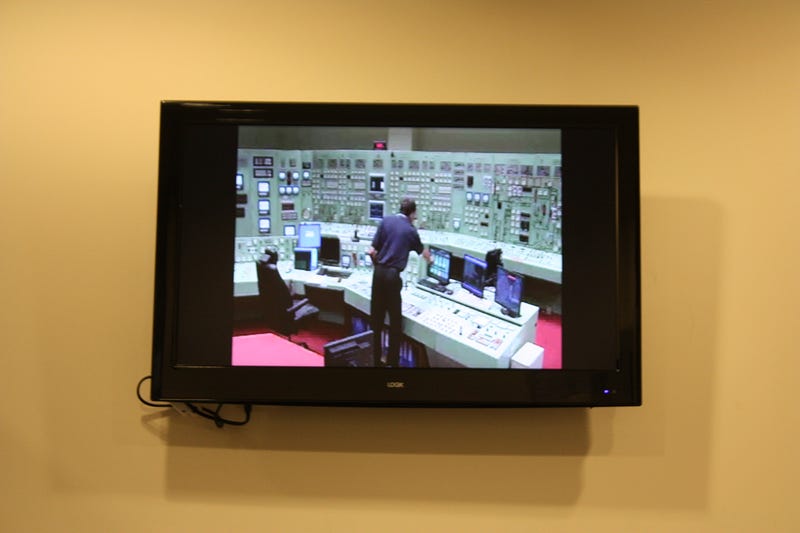Under control
An appropriate image?

On the vast car park that stretches between Hunterston B and the shore of the Clyde estuary, stand hundreds of cars and vehicles of all types: battered white contractors’ vans; smart family saloons; even the odd brand-new red BMW coupé.
The road that links the power plant to the A78 is lined with signposts bearing messages printed in insistently large letters: DRIVE SAFELY. After we get back to Ayr, someone asks me: “Why do they have all those signs on the road? Is there something about working in a nuclear power plant that makes all the workers want to drive like reckless idiots the moment they get off the premises?!”
Throughout our visit, our guides insisted over and over again on the “coaching culture” (sometimes also referred to as a “challenging culture”) that the company has gone out of its way to cultivate. When one of our party stepped out of the visitor’s centre with a loose shoe lace, a guide immediately pounced on her: “You should do that up!” she said, smiling brightly. I had a sudden flashback to my mother when I was seven, and spent much of the rest of the visit in fear of retraumatisation.
Several times, the staff who accompanied us on our tour of the plant stressed that they felt entirely at ease challenging anyone they might see who was doing anything that might put themselves or others at risk, no matter their respective roles in the hierarchy. They would even challenge the Managing Director of EDF, if he stepped out of line. “People are always calling you out here”, said one of our hosts. “If I saw my boss doing something that was wrong, that was bad practice, I wouldn’t hesitate to tell him”, he added, with a certain pride.
The walls, too, are lined with notices reminding the employees of what good safety practice entails. The general tone is part aspirational exhortation, part pre-emptive admonition. They seem to presume that those addressed are not only to be policed, but are proud to be part of the police, too.
Many of these pronouncements are voiced through an apparently all-inclusive, egalitarian “we”. In a similar vein, our guides insisted on referring to contractors not as contractors, but as “contractual partners”. I was reminded of a notice I once saw in the storeroom of the John Lewis department store in Newcastle, a company which used to boast of its singularly inclusive, non-hierarchical structure: “Any partners found smoking in this area will be instantly dismissed”.
That’s the problem with partnership. Some partners may turn out to be more equal than others.
As we came to the end of our visit, we were whisked past a series of noticeboards, and I turned my head to try and catch what was written on them as our guides pressed relentlessly on towards the security gate, and our mutual liberation. Looking backwards as I traveled forwards, I couldn’t help but feel that the brightly safety-conscious assertion that caught my eye was intended to chastise me personally:
We always look where we are going.
Credits
-
Text and photo
Peter Snowdon